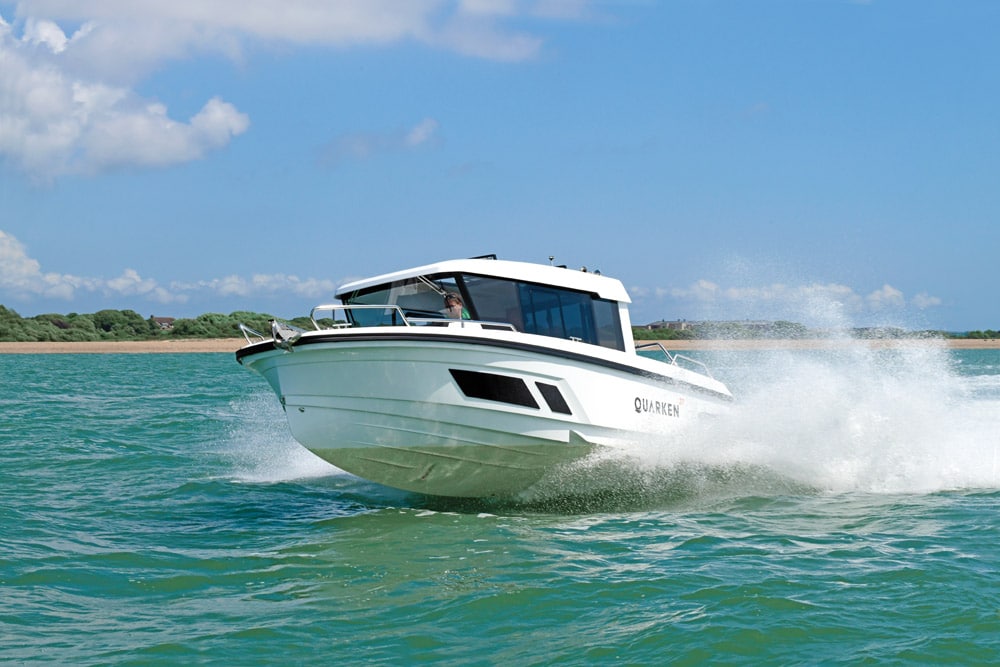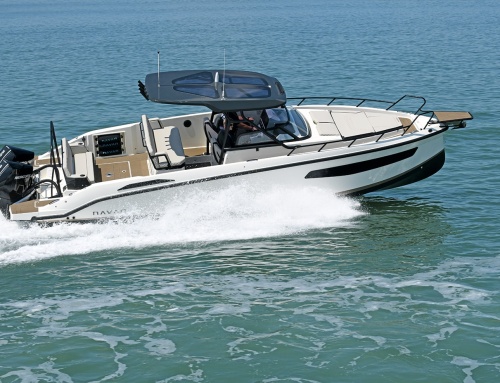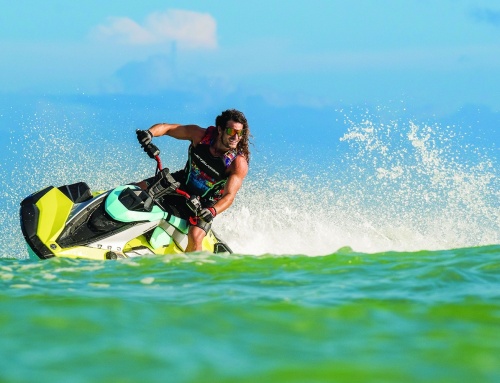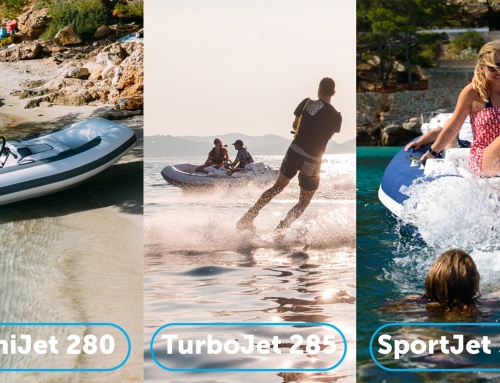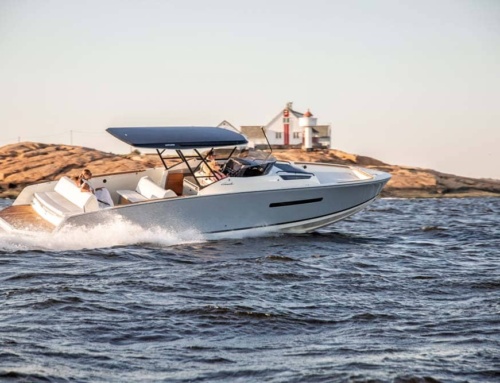This solidly built and capable 40-knot weekender is priced to entice. Greg Copp reports on one of three offerings from Quarken …
At this moment in time, this new Finnish company builds just three models: the 27 Open, the 27 Cabin and the 27 T-top, which we tested last summer. Being typically Scandinavian, the 27 Cabin is the ever-popular wheelhouse design, providing full weather protection, safe deck access and a healthy dose of performance. The dagger-like vertical stem bow, twin-stepped hull, high bulwark-enclosed side deck and driver-focused helm are common across the range. The fit and finish is of a high standard, and the level of innovation is very good. The external gelcoat is impressive, as is all the stainless work.
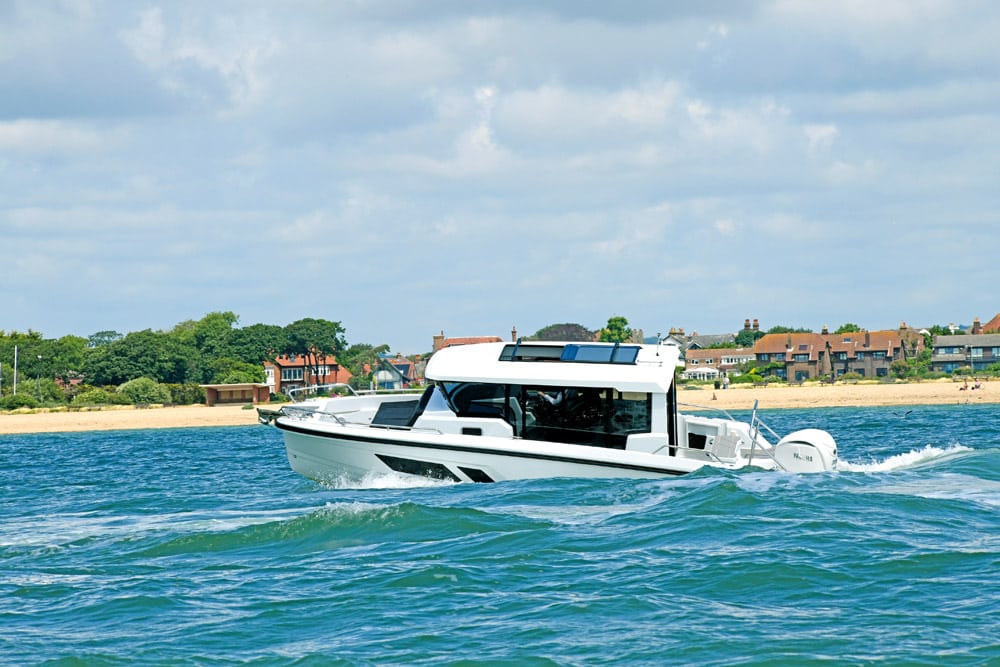
However, there were a couple of issues that I discovered on this model. Firstly, the battery locker, housing three batteries located under the deck on the port quarter, had no gas strut. The fact that it could not stay open unaided indicated that battery access is a two-man job. Also, being located at the aft end of the side deck means that if you take a large wave over the bow, it is going to be channelled straight over the battery hatch to the port scupper. This hatch does have a sealing lip, but big seas can make their mark. Ideally these batteries would be located at the forward end of the large storage compartment under the cockpit – and on the centreline for better weight distribution. Secondly, past 35 knots, the long sunroof rattled when open – not a major issue but annoying.
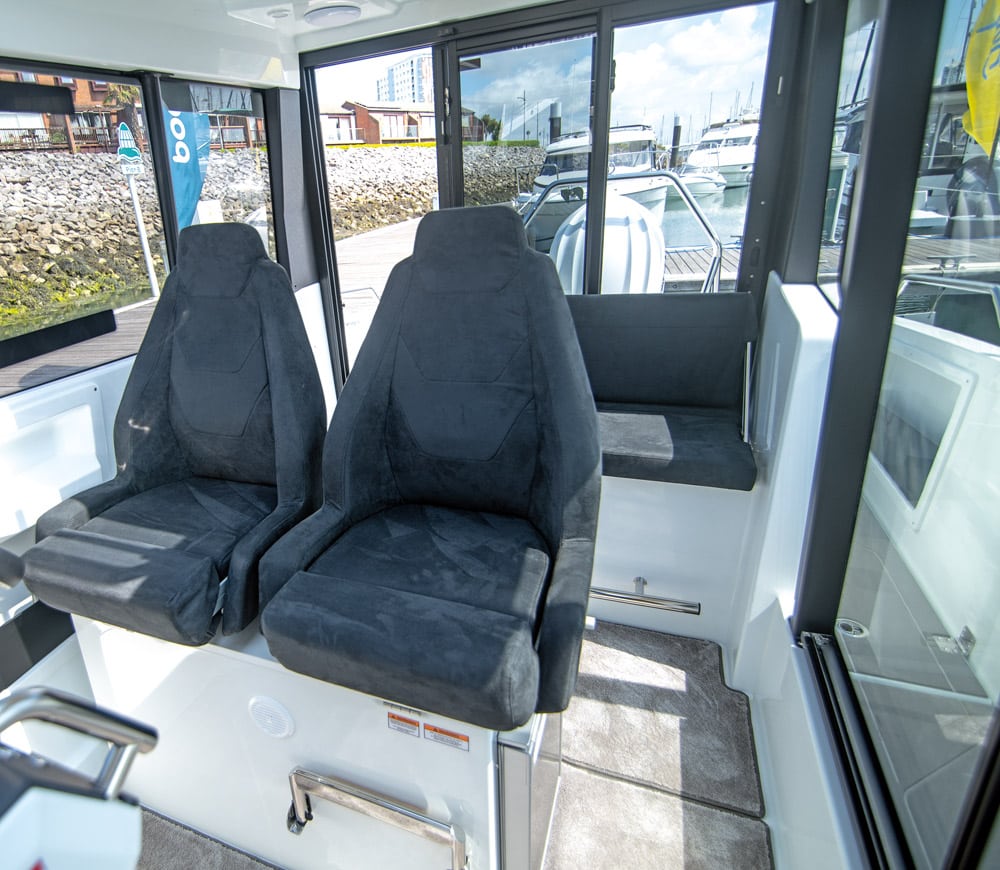
Plenty of natural light in the wheelhouse.
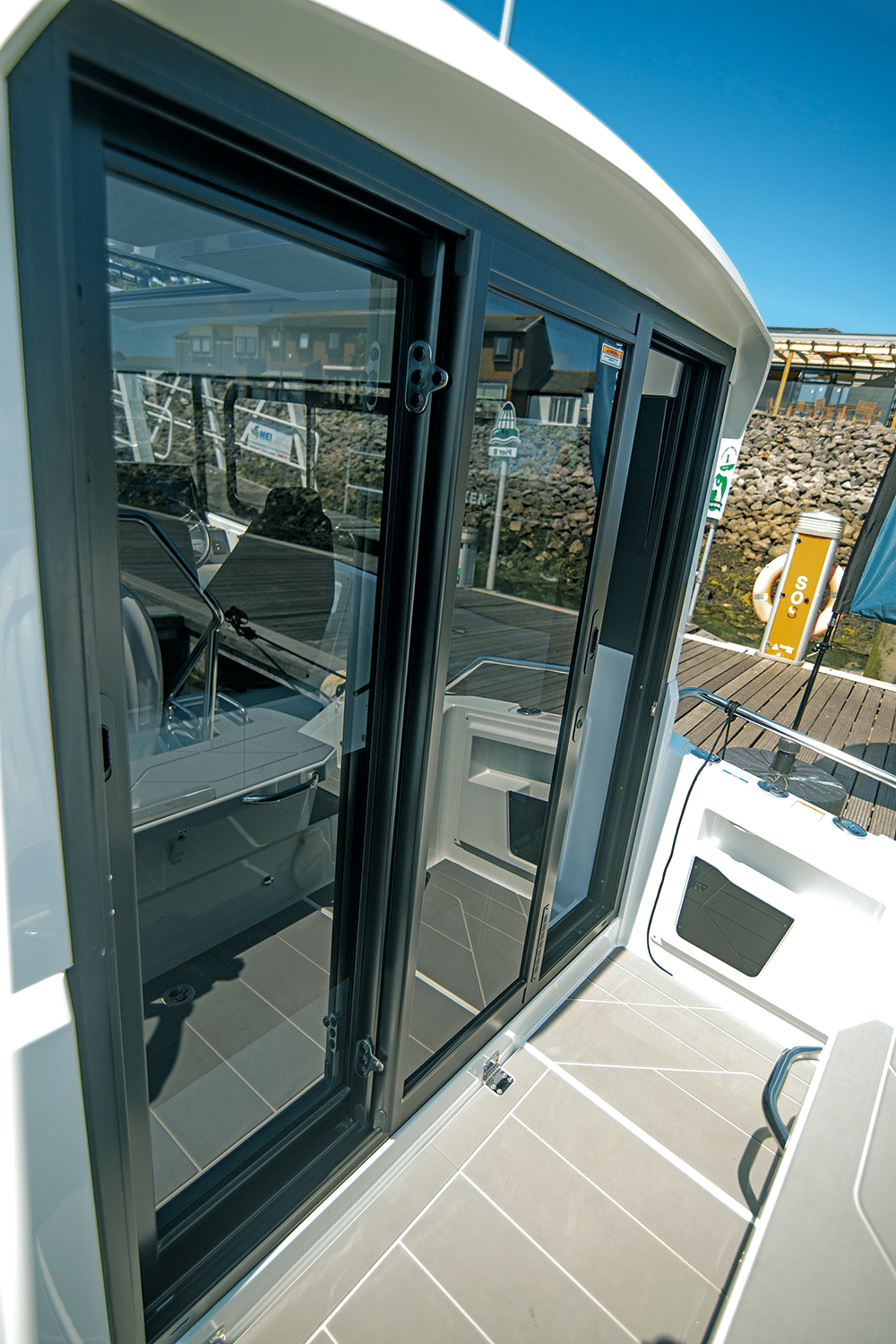
These doors can open from either side
Stepping aboard is quick and easy thanks to a deep full-beam bathing platform, covered in thick SmartDeck synthetic decking. This area is focused around the optional waterski pylon, which wraps around the engine, providing handholds where you need them. The SmartDeck-covered transom bench seat also serves as a fender locker with four internal fender pockets. The wheelhouse door can open from either side. If opened on the port side, the internal bench seat, with its backrest locked in its forward position, faces out into the cockpit. In normal cabin configuration, the navigator’s seat can be reversed to face the bench seat, which also has a fold-out extension on its starboard end so three can sit. Refreshments are courtesy of the 50L Dometic fridge under the navigator’s seat.
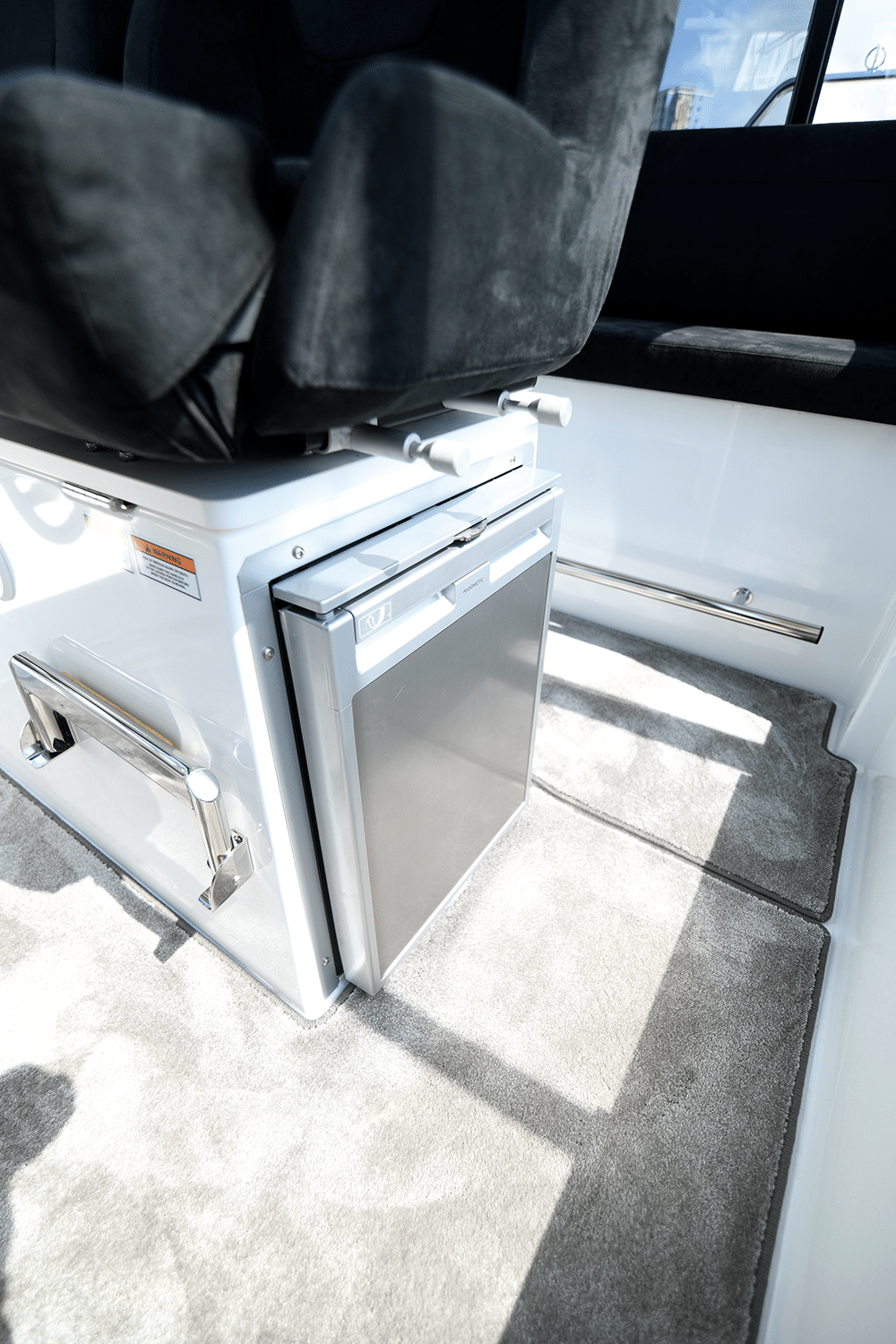
A 50L fridge sits under the navigator’s seat.
The foredeck boasts a triple sunbed, which, with the removal of the forepeak cushions, becomes a bow lounger complemented by a table. Under this lounger is a large escape hatch opening directly into the cabin below, which means, as it is a front opener, you can have a cooling airflow running through and up to the wheelhouse. In true Scandinavian form, a chunky windlass sits next to a deep fender/warp locker, which also serves as a pulpit bow step.
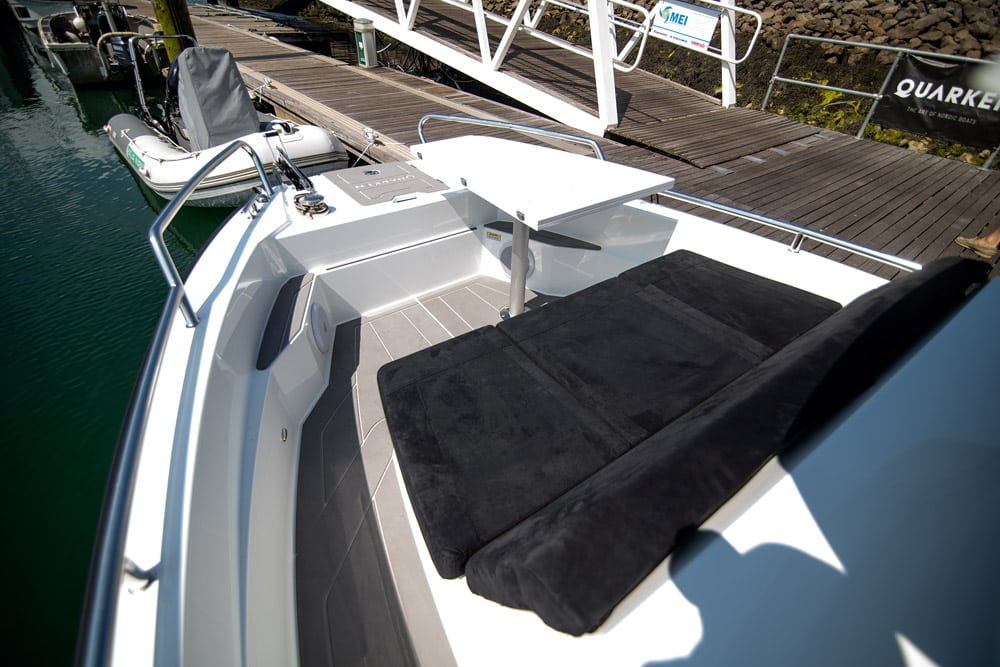
The foredeck can be a lounger or a dinette.

Below decks, there is a long double V-berth, which for most will provide comfortable weekend accommodation. There is also a sink, storage and an electric toilet complete with holding tank, as well as a curtain that separates the toilet section from the rest of the cabin. There is sufficient headroom in the aft part of this cabin for getting undressed sitting down, but squeezing in a separate heads compartment would not have been realistic. There is also a transom shower, which is part of the £6,000 ‘Weekend Package’ to include the toilet, shore power, freshwater system and fridge.
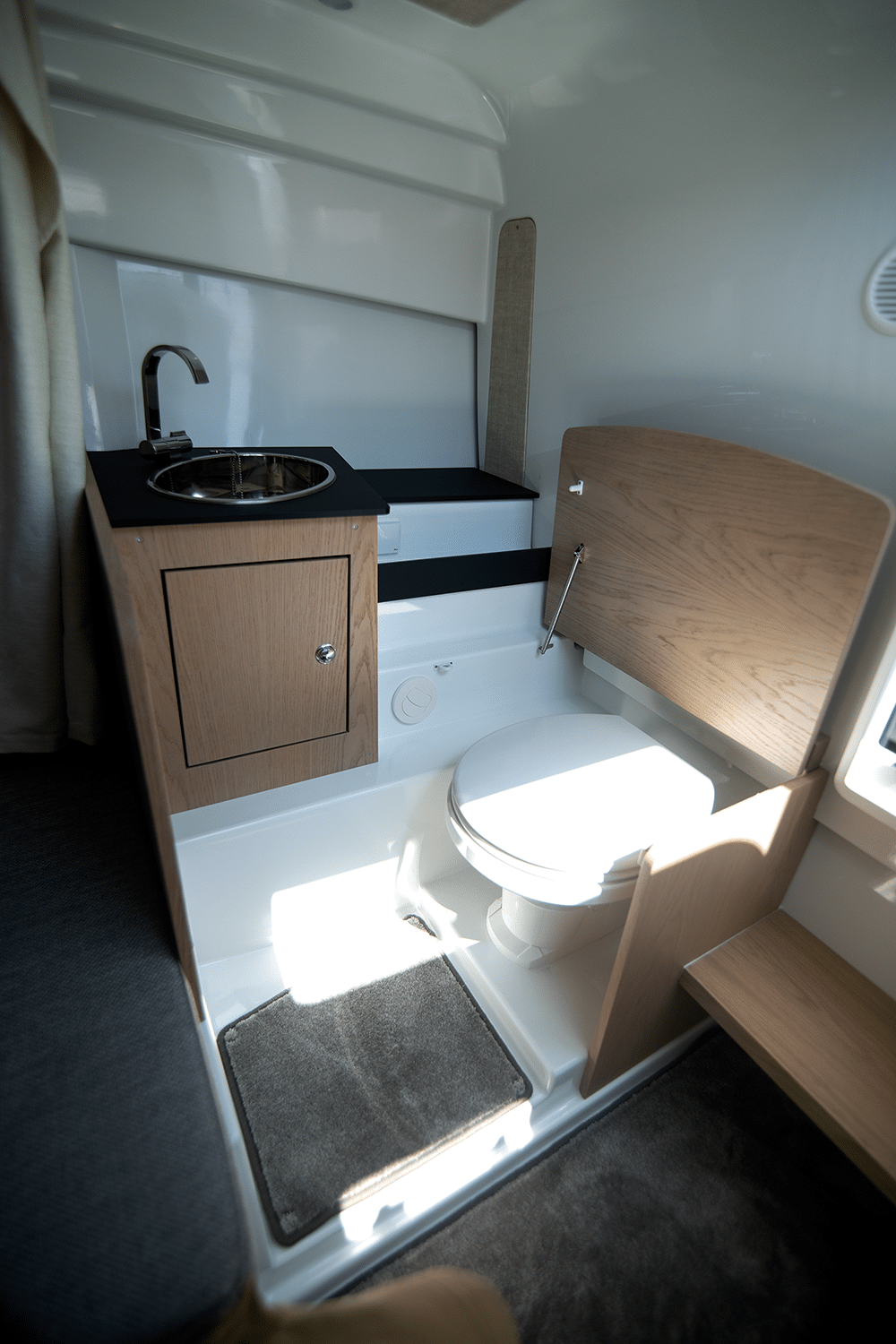
The toilet can be separated by a curtain.
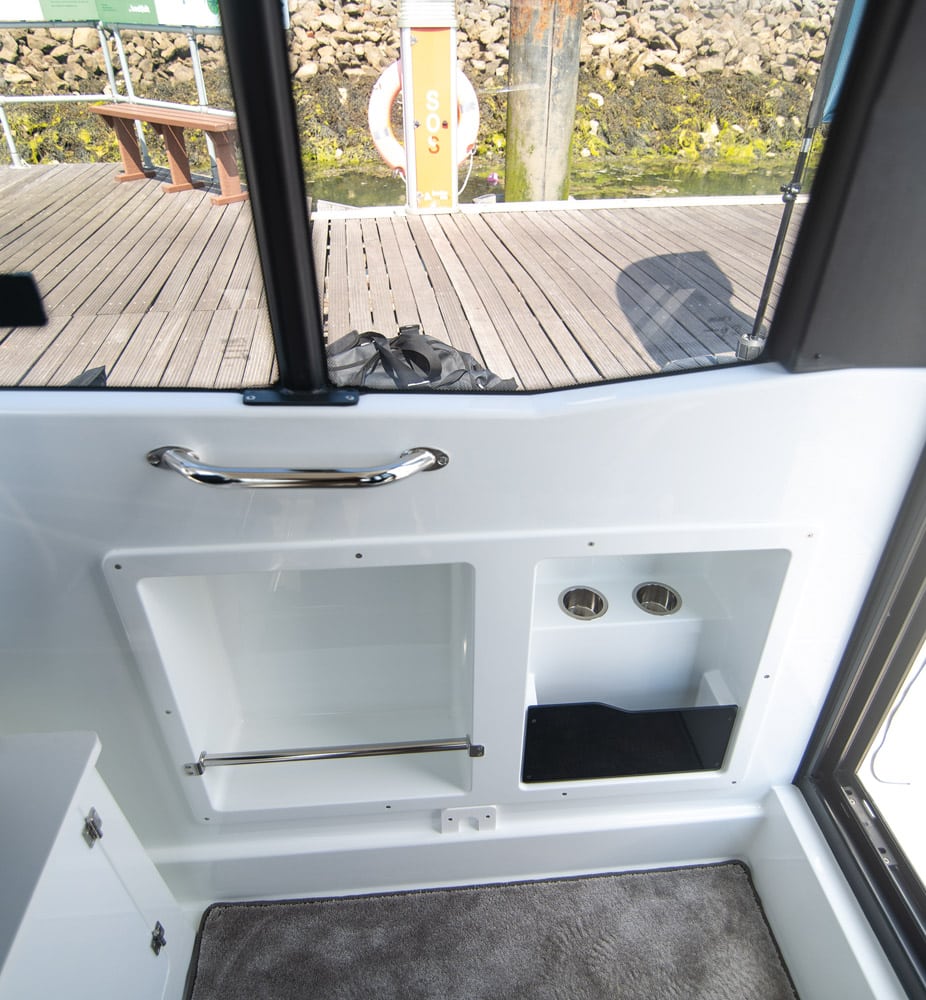
A wide pulpit for forward access.
Behind the wheel
At the helm you have the choice of either one or two Garmin 12in MFDs. Having a second display is part of the £6,200 ‘Premium Package’, and though far from crucial, this set-up fills the dash completely with everything you need to know at a glance. The Yamaha display sits centrally, so you have all engine data such as trim, fuel burn and engine temperature under your line of sight. The dash itself is black, thereby eliminating white glare, and a wireless phone charger is located in a horizontal recess just in front of the wheel. All primary switches can be found conveniently on the port side of the wheel, while the throttle and Mente Marine trim tab panel are located on the right-hand side.

A good driver’s helm.
The helm position is quite elevated, so you may not feel the need to stand, especially as the bucket seats hold you where you need to be, and a footboard provides that extra leg support/tension if you need it. Being 6ft tall, I could not get an unhindered view under the top of the window line when standing, so sitting it was. I am not a fan of sitting when driving, but this boat gives you clear vision over the bow sitting down. However, when banking hard to port you will need to bend down slightly to get a complete view over the port beam/quarter – often part and parcel of any wheelhouse boat – otherwise all-round visibility is excellent.
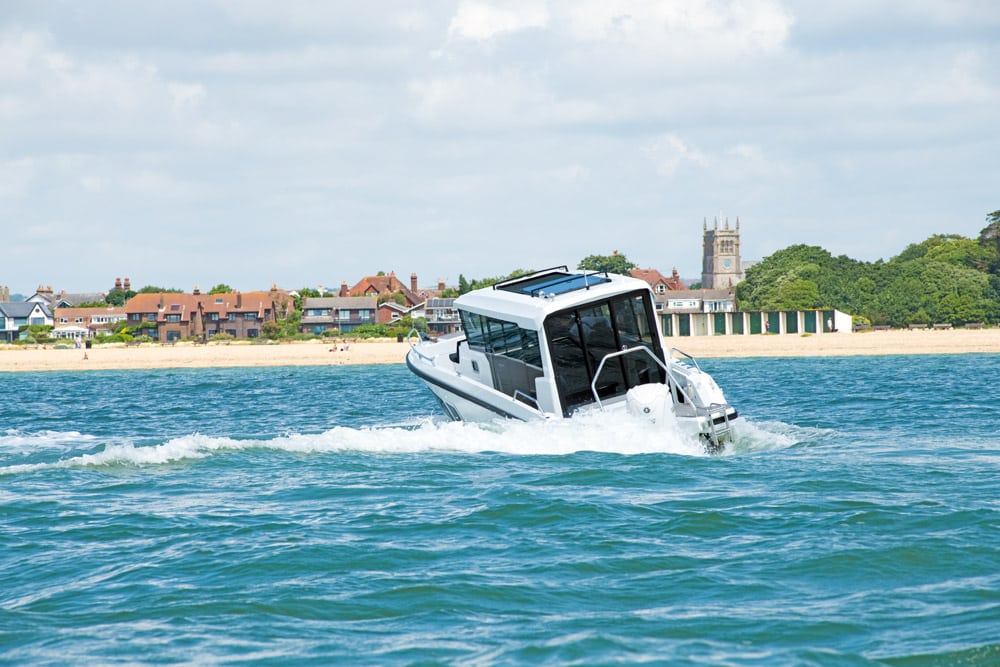
Compared to the Quarken 27 T-top that I tested last summer, this boat displays slightly more bow lift when powering up onto the plane – no doubt as a result of having more weight aft than the T-top. Once you are past 25 knots, the boat runs level with pretty good natural fore and aft trim, and you get the feeling that if you wanted to clock some relaxed sea miles, this would be the speed to sit at. However, if you need to maintain a faster cruising speed, then 30 knots still provides a composed ride, with around 25% engine trim. Running into the weather above this speed does mean keeping the outboard trimmed at this level or lower, depending on the sea state, otherwise you will get some slamming. Running with the sea on the stern is a case of 50% trim out, which is where you need to be if you want to squeeze the last few knots from her. We had a force 3, so nothing challenging, but keeping the Quarken’s sharp forefoot down does help if running through any chop or head sea.
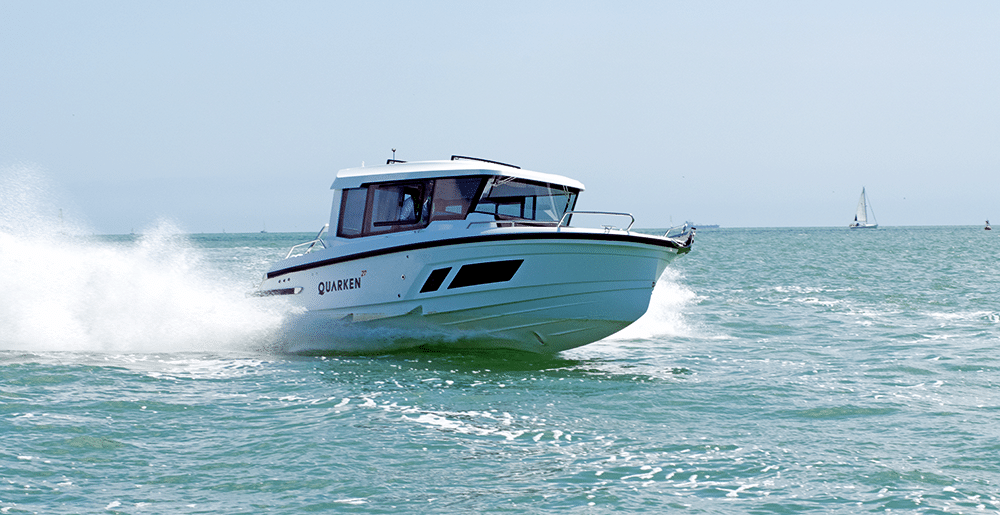
Going above 30 knots revealed a small shortcoming. This boat is fitted with Mente Marine’s automatic trim tab system, but it had not been set up and calibrated. Consequently, when running with the weather on the beam, or turning into the wind, you can get that ‘tippy feeling’. This was a characteristic that the 27 T-top did not display and is a result of the extra topside weight and windage of the cabin. Running flat out at the boat’s 41-knot top speed did not produce the rock-steady ride of its T-top sibling, but this was dependent on one’s bearing to the weather, so I have little doubt that with the Mente Marine system set up, things would be different. Like the T-top, it can cut some tight turns, and its twin-stepped hull maintains a good grip on the water. The electrical power steering is light and responsive, providing plenty of feedback, and never gives the impression that you might overcook it.
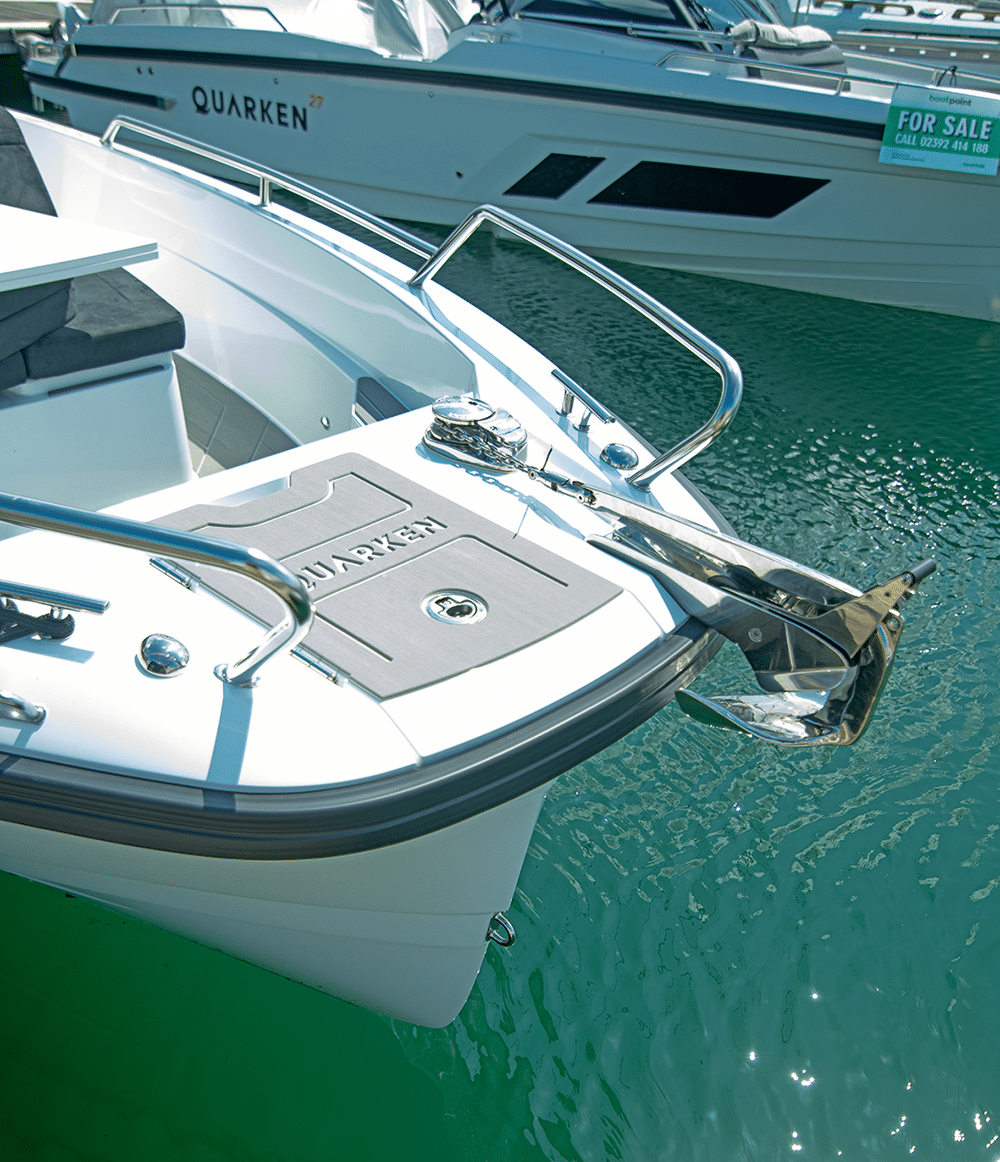
The side deck has tall bulwarks for a 27-footer.
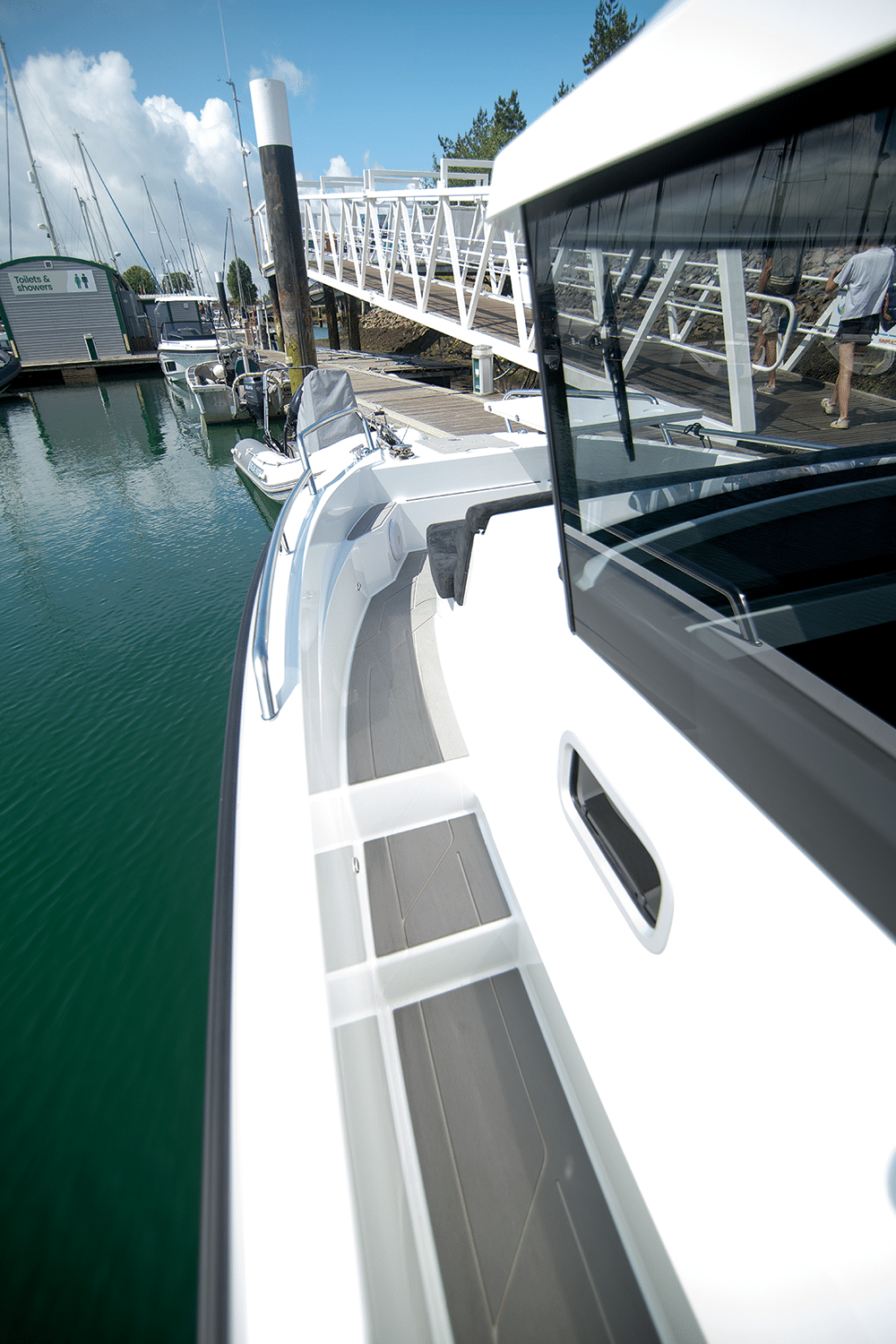
No space is wasted
Verdict
This boat is in a competitive sector of the market and therefore packs a lot of features into a 27-footer. As many of these features are extras, few will consider it in base form, which is not an issue, as its ‘as tested’ price tag is reasonable. Being realistic, Quarken do not offer a cheaper engine option, as the F300 it is supplied with is a good match for this craft. However, it does need to have its auto trim tab system calibrated in order to release the full driving potential of its capable twin-stepped deep-vee hull.
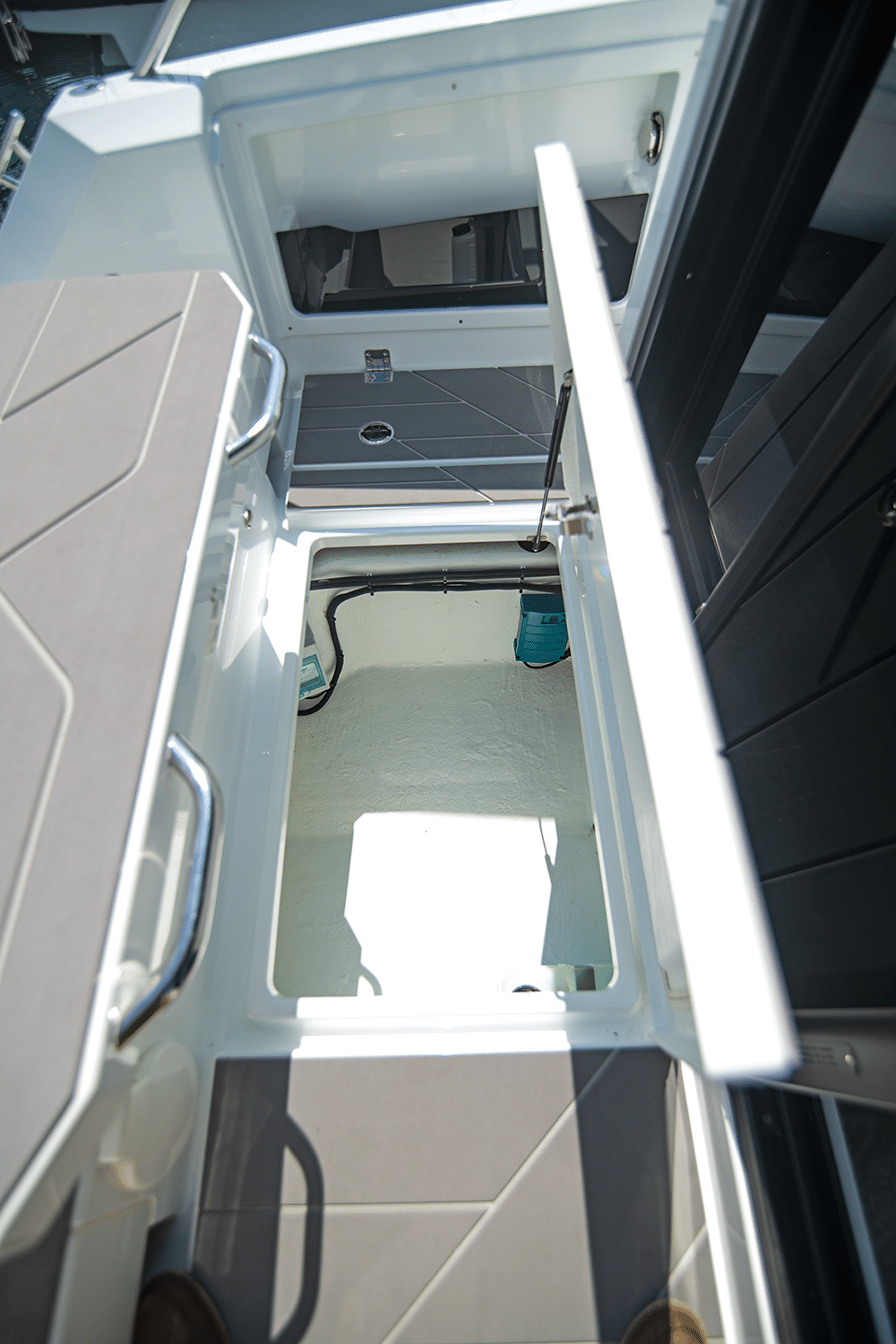
A large cockpit locker.
What we thought
For
- Build quality
- Plenty of natural light in wheelhouse
- Responsive steering
- Good attention to detail
- Innovation
- Fit and finish
- Good level of performance
Against
- Battery compartment needs a gas strut.
- Sunroof rattles when open at speed.
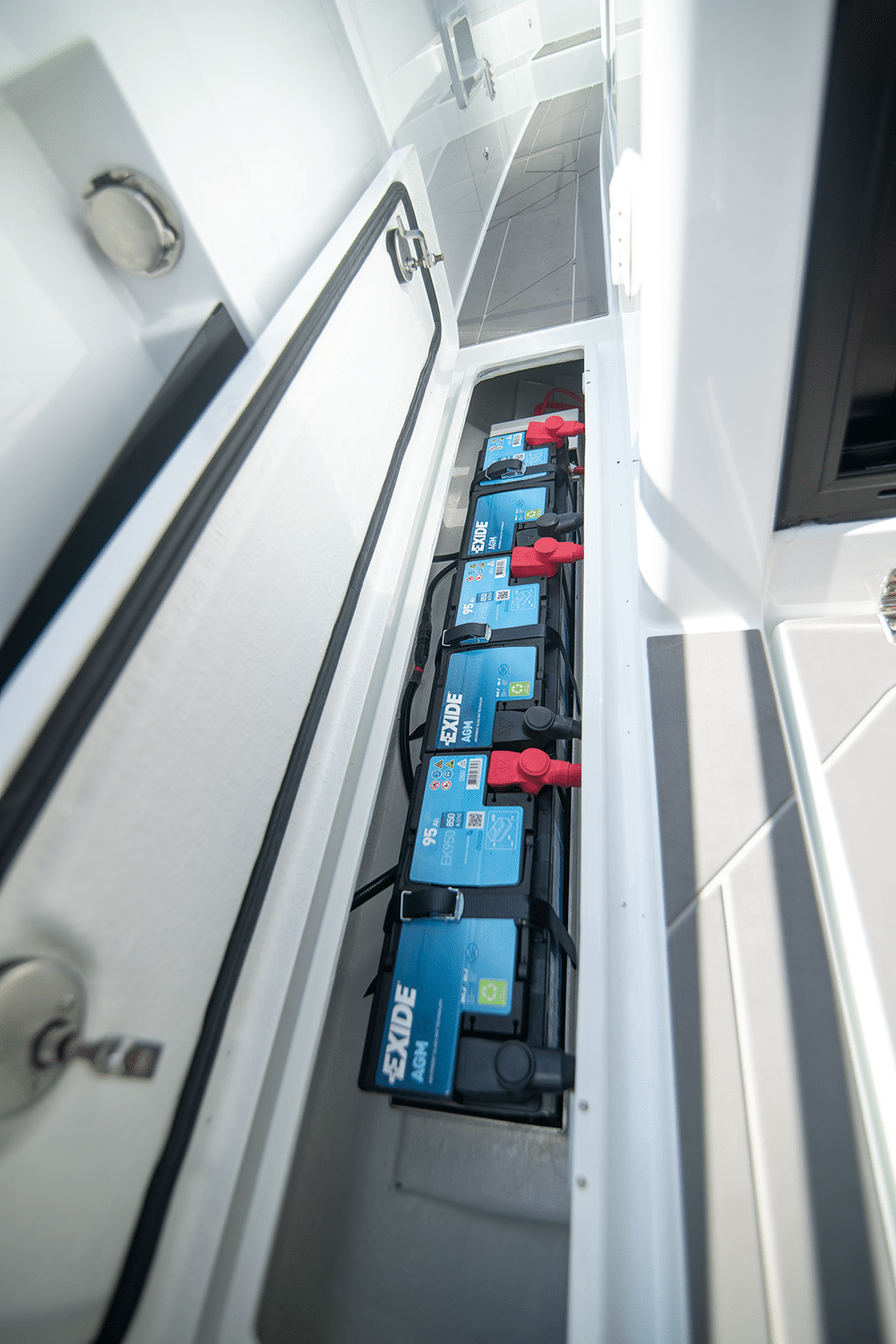
This battery locker needs a gas strut.
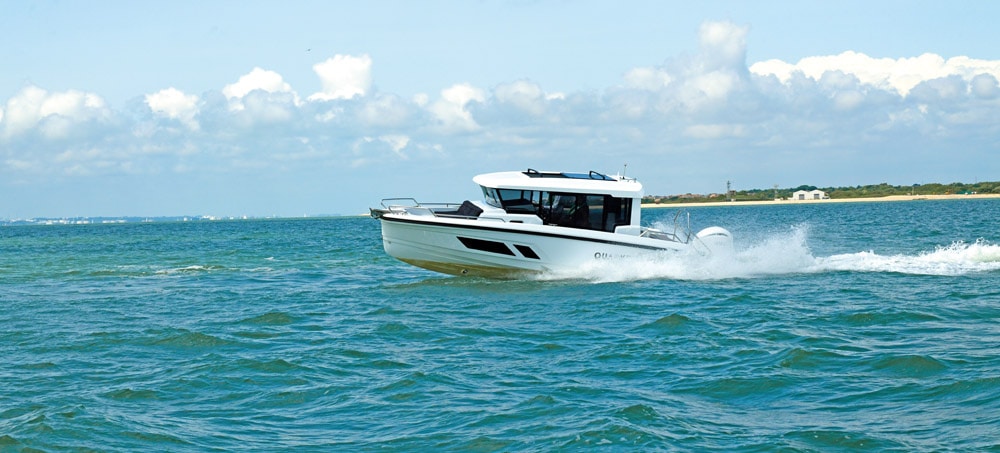
Ed’s Note: A dirty hull can affect the performance of any hull. Owners are advised to always keep hulls clean and free of build up.
Specifications
- LOA: 8.35m
- Beam: 2.59m
- Draught: 0.85m
- Hull: Deep-vee twin-stepped
- Displacement: 2700kg (dry, no engine)
- Power options: Single 300hp Yamaha F300
- Fuel capacity: 300L (66 gallons)
- RCD category: C
- Test engine: Single 300hp Yamaha F300
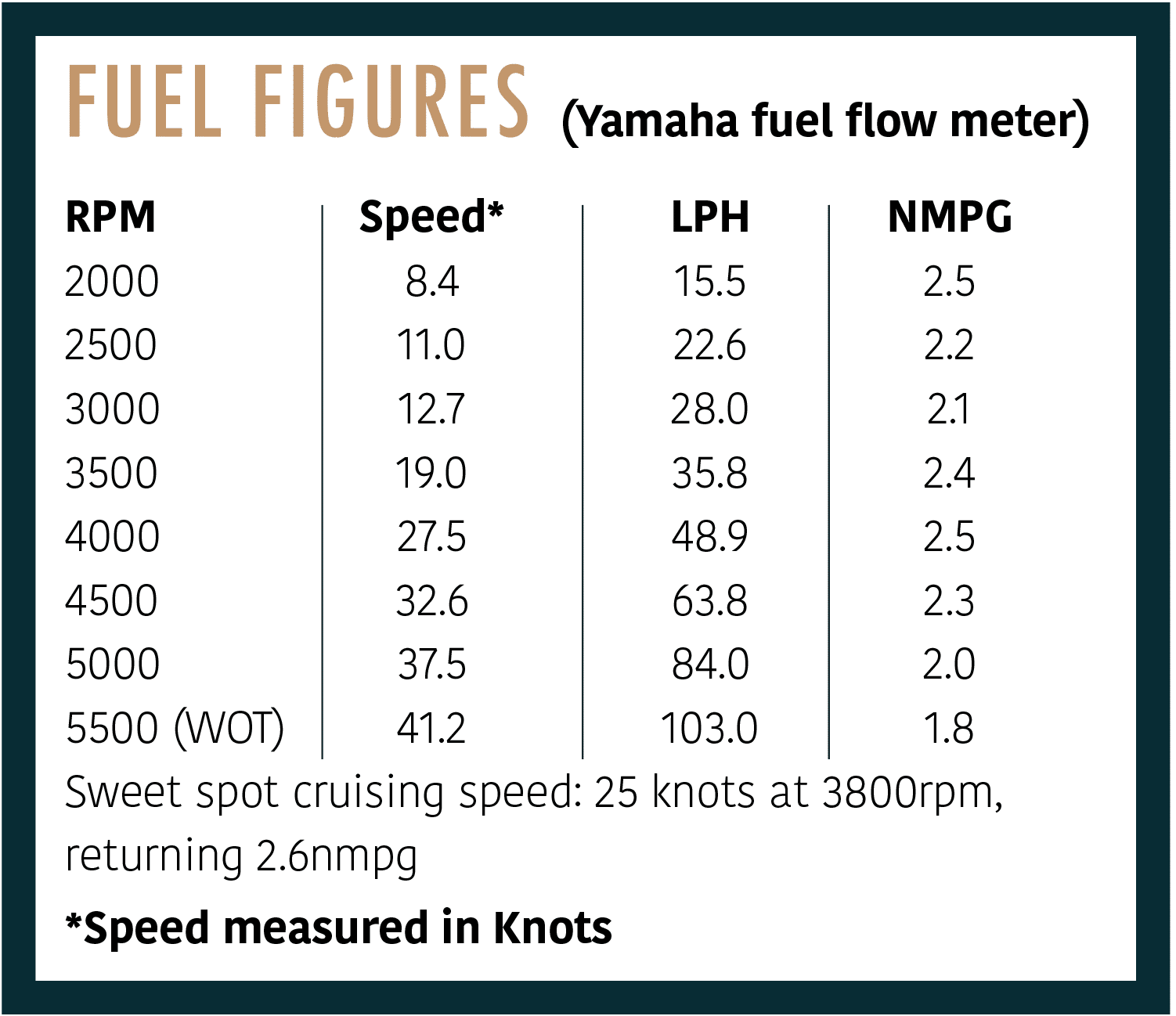
Performance
- 41.2 knots (2-way average), sea conditions F3, crew 3, fuel 30%
- 0–30 knots: 11 seconds
Price (INC VAT)
As tested: £145,000
Contact
Boatpoint Ltd, Deacons House, Bridge Rd, Bursledon, Hampshire, SO31 8AZ

